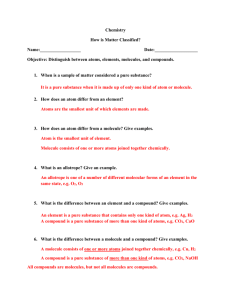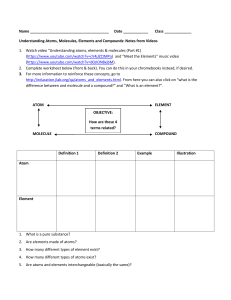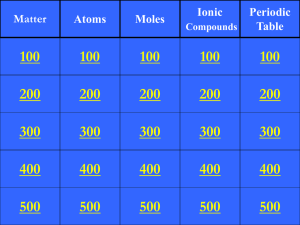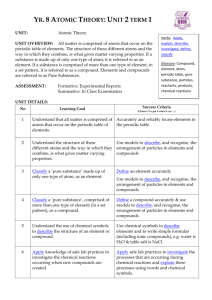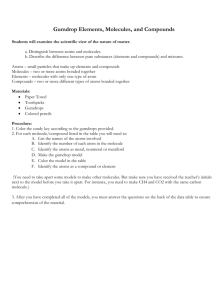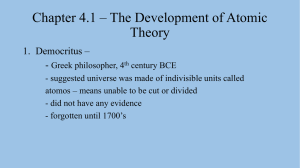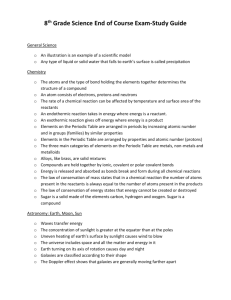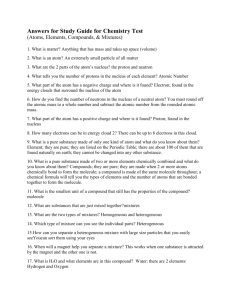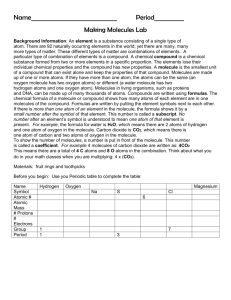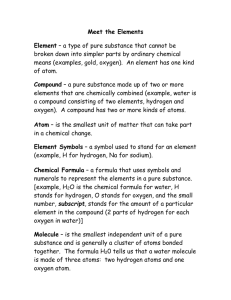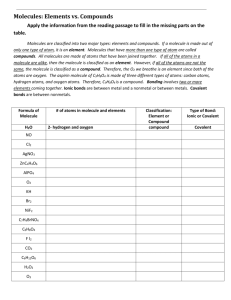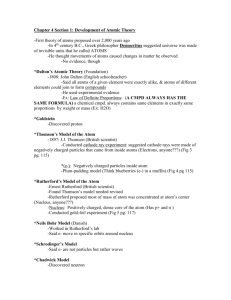The number of an atom has determines what element it is
advertisement
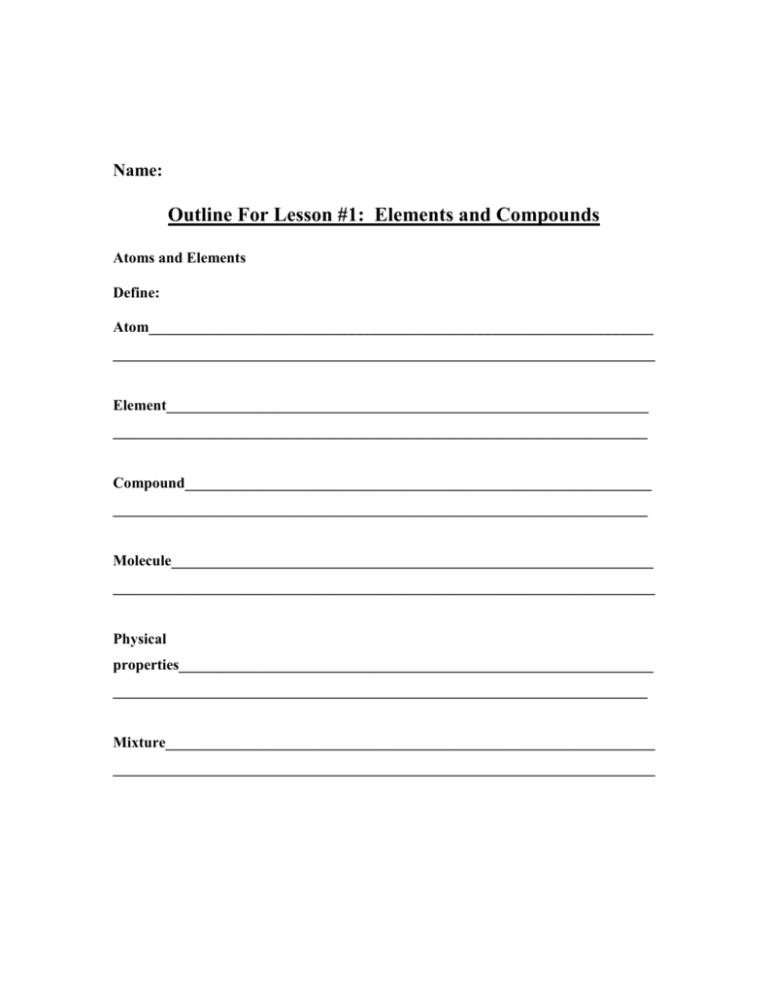
Name: Outline For Lesson #1: Elements and Compounds Atoms and Elements Define: Atom___________________________________________________________________ ________________________________________________________________________ Element________________________________________________________________ _______________________________________________________________________ Compound______________________________________________________________ _______________________________________________________________________ Molecule________________________________________________________________ ________________________________________________________________________ Physical properties_______________________________________________________________ _______________________________________________________________________ Mixture_________________________________________________________________ ________________________________________________________________________ Wow!! Atoms and elements. We are certainly in for building from the bottom up. Hang on! We are looking at what all matter is made of. Does matter matter? Of course, it’s everything all around you. The simplest form of all matter is an ______________. Those _______________ are made of ___________, which are even smaller, and still maintain the same properties of that element. But these can even be broken down into smaller particles called _____________, _______________, and _________________. Although these do not have the properties of that element, when they come together they create the properties of that certain element (will get more to this “property” thing later). You get all that???? Let’s break it down from least to greatest: _____________, _________________, and neutrons make up atoms atoms make up ________________. and……….. elements make up ______________. Which is everything. All around us?????? Wow! The number of ______________ an atom has determines what element it is. Every atom has the property within an element has the properties of that element. Properties describe how an object looks, feels, or acts. CARBON: Carbon atoms are all alike. They combine in different ways and with other elements to form all kinds of things. It is found in the lead of a pencil, _____________, and all ____________ things. Pretty amazing element. Do you think its properties are fairly important? The Periodic Table: There are only about 100 elements but they combine to form millions of ___________________. Everything in the world is made from these elements. Remember that the number of protons in an atom are the same for all atoms of that element. This number equals an elements ____________ _______________. The periodic table is arranged in order of the atomic number of all elements. The elements In each _____________ of the table have similar properties(remember columns run up and down, while rows go across). Periodic means to repeat in a pattern, and thus this table can be used to predict how certain elements will behave in certain scenarios. Take a few minutes and look at the captions about the table on these two pages. Then try to answer these questions: 1. True/False All elements that occur naturally use one or two letters to be identified. 2. What is the symbol for chlorine? 3. Lead (Pb) occurs as a what at room temperature? 4. Argon has how many protons in each atom? 5. What two elements occur as a liquid at room temperature? 6. What element has the symbol Ni? 7. What two elements make up water? Molecules and Compounds: Most elements are found in ______________ in nature and not in their pure form. In order to be a ______________ two elements need to be ______________ combined. Time to talk formulas, now we’re speaking that mad scientist lingo! Formulas show how many ________ of each element are in a compound. What is the formula for water?____ These two elements are both ____________ and need a bit of _____________ added to make water. Pure substances include elements and _______________. In order to be pure all particles need to be ___________. The compound water is made of many similar ________________ of water. This is the smallest unit of water that can exist in nature. The numbers tell how many atoms are in a single molecule, so the compound water contains 2 _________ atoms and 1 _________ atom. Draw a picture of a water molecule. Try These: Can you tell me how many of each element is found in these common compounds? 1. rust (Fe2O3) 2. baking soda (NaHCO3) 3. salt (NaCl) Physical Properties: We can use our ____________ to observe some of the physical properties of “things”. Other times we need to use measuring instruments to find _________________ data on objects, information that involves numbers. Remember the three states of matter you have already studied are; solid, _________, and gas (we will disregard plasma and the other funky one for now). The state in which a matter exists is a _____________ property and when it changes from one form to another it is a ______________ change. Its chemical makeup has not changed. Another physical property is _______________, the ability to dissolve. Use the terms dissolve and mix as clues to know a ____________ change has happened and not a chemical one. This is helpful to recognize that a mixture is a combo of two or more _________________ in which they themselves aren’t changed. Huh? Sugar and water mix together. What happens? The sugar dissolves and seems to disappear into a sugar-water solution, but wait. Add some heat to help the water evaporate and you are left with the sugar in its original form. The two molecules combined, but it was only a ________________ change. Again let’s try and break down this lesson in some type of order. Three things make up atoms: _________, ______________, and ____________ Atoms make up _____________________ Elements make up ________________(chemical change) and __________________ (physical change). ______________ are the smallest unit of a compound and contain two or more elements. And all of this makes up everything we know in the world. Again. WOW!!! Did we miss anything???? Get to know your periodic table. Find one you can print out and put up in your room. It will help you along the way.
